As of December 2021, the internet penetration rate was about 43% in Africa, according to the Internet Society. Some of the covered population do not even have access to quality internet. Nevertheless, telecom operators are beefing up their broadband infrastructure to better address this.
Mauritius Telecom, the largest Internet service provider and cellular service distributor in Mauritius, announced on Friday, March 24, that it has laid the T3 fiber optic submarine cable in Mauritius. The first end of the new infrastructure landed on Thursday, March 23, 2023, at the Baie-du-Jacotet landing station in the Bel Ombre region. The other end will land later this year in Amanzimtoti, KwaZulu-Natal Province, South Africa.
"With the rapid adoption of applications and services such as cloud computing, connected objects, video streaming, and others, it was essential for Mauritius Telecom to put in place the required infrastructure and capacity," said Kapil Resaul, CEO of Mauritius Telecom.
The 3,200 km long T3 cable has a capacity of 18 terabits per second, providing Mauritius Telecom with a more reliable, robust, and redundant network. It is scheduled to be commissioned by the end of 2023 and has an estimated lifespan of 25 years.
T3 is a partial takeover of the IOX submarine cable project that was to connect Mauritius to South Africa and India. First announced in 2017, it was abandoned in 2019. It will therefore join Mauritius Telecom's existing submarine cables, namely South Africa Far East (SAFE) and Lower Indian Ocean Network (LION), commissioned in 2002 and 2009 respectively.
Let’s note that Mauritius Telecom is 40% owned by Orange SA through Rimcom Ltd. Its remaining shareholders are the Mauritius government ( over 30%) and the local bank SBM (about 19%).
Samira Njoya
The solution was launched by a former Jumia Kenya executive and some of his colleagues. It aims to lower the cost of living.
Kapu is a business-to-customer platform developed by a Kenyan start-up. It allows users to shop online at lower prices. The startup was founded in 2022 by Sam Chappatte, a former executive vice president of unicorn Jumia, to help African consumers reduce living costs and save $1 billion over the next 10 years.
“People spending like 40 to 50% of their household income on the grocery basket is a big problem for society, but it is also a huge opportunity … The reason we started Kapu is that we think there is a more relevant model of e-commerce that can be built to target the grocery basket, which is the biggest portion of spending for the vast majority of consumers. And if by using technology we can bring efficiency then we can have a tremendous impact on society for consumers and businesses,” Sam Chappate told Techcrunch in 2022.
To be more effective, the solution has introduced a variety of technologies for order placing. First, users can place orders on its web platform. Apart from the web platform, they can also place orders through its Android app or on Whatsapp. To place orders through the web platform or the Android app, users need to create accounts.
With its 1,500 relay points in Nairobi, the startup delivers orders the next day. “Customers receive a notification from Kapu and also from the agents, to go pick up their goods. Many agents also deliver to consumers’ homes,” said Chappate.
The startup is not yet covering the entire Kenyan capital but, it already claims some 1 million orders and $300,000 saved by customers. Its app has already been downloaded more than 5,000 times according to Play Store data. After raising $8 million in December 2022, it hopes to cover all of Nairobi before entering other Kenyan cities.
Adoni Conrad Quenum
For over 17 years, he worked in the African telecommunications sector. As the head of Silikin Village in the Democratic Republic of Congo, he is working to create a dynamic entrepreneurship ecosystem.
Raymond Mendy (photo) is a Senegalese entrepreneur and business leader. He is a graduate of the University of Paris-Est Créteil (UPEC), where he earned a master's in administration (1999). He also holds an executive certificate in international marketing (2009) from the Thunderbird School of Global Management. In 2020, he was appointed as the head of the incubator Silikin Village based in Kinshasa, DR Congo.
As the general manager, he oversees the development and implementation of the incubator’s strategy to search, attract and integrate deserving and qualified entrepreneurs and startups. He also supervises the development of partnerships with other incubators and accelerators to build entrepreneurial programs supported by donors and development partners.
Silikin Village, which he manages, is an entrepreneurship and innovation hub established in the heart of Kinshasa in the Democratic Republic of Congo by the TEXAF Group, a publicly traded company focusing on real estate and the digital, among others. It claims to be a catalyst for start-ups and companies whose mission is to identify talent and develop innovative products and services.
“With the challenges related to access to infrastructure, youth employability, and competitiveness facing the Congolese economy, Silikin Village offers its support service for the development of the economic fabric by providing workspaces as well as training and coaching for entrepreneurs/start-ups and SMEs,” Raymond Mendy said in 2022.
Currently, apart from his duties at Silikin Village, the entrepreneur is also a strategic advisor to e-waste management startup SetTIC and Maishapay Fintech. He is also one of the directors of the digital communication platform LAfricaMobile. In 2018, in Senegal, he co-founded Di-Smart, a digital company offering website creation, mobile application development, and business automation services.
He entered the professional world in 1999 when he joined the telecom company OneTel as a business process analyst. In 2001, he joined Millicom as a revenue assurance manager before being promoted to the position of financial analyst in 2003. In 2005, he was hired by Celtel International as a revenue assurance manager.
In April 2006, he became the Country Manager of Exp Agency in Cameroon. Seven months later, in the DRC, he was appointed Revenue Assurance and Fraud Management Manager by telecom operator Zain. In March 2009, he was promoted to head the company's marketing segments.
Eight months later, he joined Airtel DRC as Marketing Manager. Then, in 2011, Airtel appointed him as marketing director in Niger before he became the CEO in 2014. In 2018, he was hired as the regional business development manager of Wari, in Senegal. The following year, he was appointed general manager of startup incubator CTIC Dakar, a position he held until 2020.
Melchior Koba
Agrifoodtech: The mechanization segment raised lower funding in 2022 despite its importance (Report)
In 2020, the coronavirus pandemic highlighted problems in the African food supply chain. It then sparked strong investor interest in technology as a potential solution to satisfy consumers in an increasingly digitalized world.
In 2022, African agrifoodtech startups attracted $640 million in investment, up 22% from 2021 when the volume of funds attracted was $536 million. The figures are disclosed in a report released by venture capital fund AgFunder, in collaboration with Singaporean sovereign wealth fund Temasek.
During the period, the mechanization segment attracted the lowest amount in that category. Indeed, startups in agricultural robotics, mechanization, and equipment that integrates connected tractors, drones, and automatic agricultural machines attracted only $10 million. That is 1.56% of all investments mobilized by African agrifoodtech startups.
Investment by start-up category in 2022 ($)
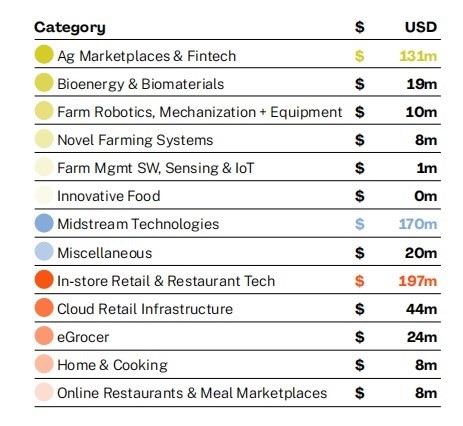
Source: AgFunder
Yet, according to the Food and Agriculture Organization (FAO), agricultural mechanization is essential in Africa because it alleviates tedious tasks, increases agricultural productivity, improves income, and contributes to food security. In 2019, the organization lamented that 65% of smallholders were still using human muscle power to prepare soils while 25% of them were using animals against only 10% using mechanized means for the task.
In comparison, in South Asia, human muscle power use has already fallen to 30 percent for land preparation work, compared with 40 percent for motorized machinery, while in Latin America and the Caribbean motorized machinery was used by 50 percent of farmers.
Investment in mechanization by region in 2022 ($)
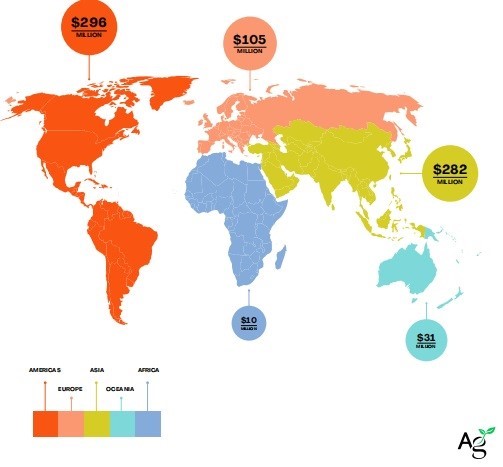
Source: AgFunder
According to AgFunder, four agrifoodtech segments captured the bulk of the sector's funding in 2022. In-Store Retail & Restaurant Tech startups attracted $197 million. Midstream Tech startups, which operate in the food safety, traceability, logistics, transportation, and processing segments, among others, have raised $170 million.
Meanwhile, start-ups offering marketplaces and financing solutions attracted $131 million, while start-ups specializing in cloud computing technologies that produce, among other things, ghost kitchens and autonomous delivery robots raised $44 million. These are much larger sums than those raised by startups that offer production improvement tools.
Muriel Edjo
To improve administrative and financial efficiency, the Seychelles public administration bets on digital transformation. To this end, it has launched projects in several sectors.
The Port of Victoria will digitize all of its services by next October for its 50th anniversary. Last Monday, Seychelles Transport Minister Antony Derjacques launched the Victoria Port Management Information System (PVMIS) project at the New Port in Victoria.
“The system will streamline processes before the vessels' arrival, optimize cargo flows, and improve the efficiency of operations by giving all stakeholders access to quality information via a single web-based application,” explained Egbert Moustache, deputy chief executive of the Seychelles Ports Authority (SPA), as reported by Seychelles News Agency.
The project is the result of a collaboration between the SPA, InfoPort and 4SH -two companies based in Reunion, a French overseas department- and the European Union under its Africa RISE initiative.
With funding from the European Union, consultants will carry out the business mapping process in the coming days to obtain information from all SPA stakeholders. They will then proceed to develop the system thanks to funding from InfoPort. According to the Seychelles News Agency, it will cost SPA €400,000 to buy the system.
Once operational, the system will allow Seychelles to comply with the FAL Convention -the International Maritime Organization (IMO) Convention for the Facilitation of International Maritime Traffic- by 2024.
The port of Victoria is Seychelles’ most important port and its main hub for trade with the rest of the world. The port handles about 95% of the country's imports.
Samira Njoya
The healthtech solution was developed by a group of entrepreneurs who aim to help people access competitive radiology services.
Rology is an AI platform developed by an eponymous Egyptian start-up. It enables patients to easily book appointments with radiologists. The Cairo-based startup behind the platform was founded in 2017 by Amr Abodraiaa, Moaaz Hossam, Mahmoud Eldefrawy, and Bassam Khallaf to address the shortage of radiologists in Africa.
Via its web platform, users can book an appointment with radiology specialists. They can go live within a few minutes after completing the usual formalities. The startup also offers a free trial. In both cases, users need to fill out a form by providing information such as name, hospital, or type of analysis. After the appointment, the patient receives a report from the specialist within twelve hours, and, in case of an emergency, the report is available within 90 minutes.
Rology works with about 100 hospitals and has completed several rounds of financing ($1 million in total) to expand into Africa and the Middle East. It is now present in eight countries.
In 2020, when the startup raised $860,000, co-founder Amr Abodraiaa said: "for the last three years we saw firsthand how Rology’s services help hospitals offer fast and accurate care to their patients and how it can save patients’ lives. We look forward to expanding Rology’s platform to the African and Middle Eastern market where there is a huge need for Rology’s services and ultimately help hospitals offer better care to their patients."
Adoni Conrad Quenum
He is a civil engineer and a young entrepreneur. To make real estate investment more accessible to Africans, he co-founded the fintech start-up Keble.
Emmanuel Oballa (photo) is the CEO and one of the co-founders of fintech startup Keble. The tech entrepreneur was born and raised in Nigeria, where he attended the University of Lagos, earning a bachelor's in civil and environmental engineering.
His startup Keble, founded in 2020, allows access to affordable real estate investment options to Nigerians wherever they are. Its goal is to let them profit from real estate investment opportunities by creating a safe and stable way for them to confidently grow their wealth.
Keble connects its users with the best real estate investment options available in the global market, enabling them to successfully save, invest and diversify their portfolios. It is one of the 12 startups selected for the inaugural class of the ARM Labs Lagos Techstars Accelerator, a Lagos-based program that focuses on building early-stage proptech and fintech startups across Africa.
“We are giving you dollar-based real estate assets that are fixed in price [...] and we are giving you trust,” Emmanuel Oballa said in March 2023. Thanks to Keble, users have every detail about the investments, their locations, and performance.
The startup explains that it has partnerships and administrators on different continents for the maintenance of its international assets.
“We have a good relationship with the body of developers in the UK, for example. So we have consistent communication. We get reports, documentation, updates, and first-hand information about the properties and new investment opportunities,” its CEO says.
The latter is, since 2018, the program director for the Connected Development (CODE) campus. His professional career began in 2013, as a quality assurance staff at House Of Chi (better known as Chivita), a manufacturing industry responsible for the production of juices, dairy and diet products, pharmaceuticals, etc.
From January to April 2018, he was the Director of Program Management at Enpact Initiative, a University of Lagos pioneering student community dedicated to entrepreneurship development and professional enrichment. From July 2018 to the inception of Keble, he was a real estate consultant with RealtyPro Investment Global Limited, a real estate company.
Melchior Koba
Kenya, which is at the forefront of Africa's young technology scene, is increasingly attracting international companies looking to tap into the potential of its burgeoning IT sector. In that context, authorities are developing resources to facilitate the liaison between the various parties.
Last Friday, the Kenya National Innovation Agency (KeNIA) officially launched the Kenya Innovation Bridge, a digital marketplace to connect innovators, inventors, researchers, and start-ups with funders, customers, and users, in Mombasa.
This marketplace aims to enable as many innovations as possible to scale up by attracting appropriate funding and partnerships.
According to George Masila (photo, left), KeNIA's head of communications and partnerships, the marketplace was set up because there was a gap between innovators and people interested in their innovations.
“What we did is we developed a platform that would enable them to have that direct connection with those people who will be interested in whatever they are doing. [...] The innovation platform is just a simple interface that people of all levels of education can easily interact with. It’s almost like a LinkedIn or Facebook version,” he said.
Recently dubbed the "Silicon Savannah" because of its thriving technology ecosystem, Kenya is one of the fastest-growing economies in sub-Saharan Africa. According to the Swiss Business Hub Southern Africa, this technology ecosystem is estimated to be worth $1 billion and is an attractive environment for businesses, investors, and high-tech professionals. It is already host to subsidiaries of leading companies such as Facebook, Microsoft, IBM, and Intel.
With the launch of the Kenya Innovation Bridge, the Kenyan executive wants to further foster innovation in the country. The platform will link to investment/partnership and capacity-building opportunities that will turn innovations into commercially viable products and businesses, thereby contributing to job creation and overall economic growth in the country.
Samira Njoya
The rapidly changing world is powered by emerging technologies such as AI, 5G connectivity, and the cloud. It is, therefore, crucial to build public authorities' capacities in those technologies to enable them to participate in the ongoing digital transformation.
Last Friday, the Commonwealth Secretariat and U.S. tech company Intel launched a digital learning platform to enable public servants from the 56 Commonwealth member countries- including 21 African countries- to understand and harness emerging technologies like artificial intelligence.
The program, titled "Digital Readiness for Public Sector Leaders," aims to demystify AI for senior Commonwealth officials and raise awareness of its potential applications in various sectors, reports the release issued by the organization.
Unveiling the platform at the Commonwealth's headquarters in London, Commonwealth Secretary-General Rt. Hon. Patricia Scotland (photo) said, "this course is a new and important milestone achievement, which the Commonwealth has developed for our member countries in close collaboration with Intel. It provides a unique opportunity for public sector workers and leaders in member states to be trained in the fundamentals of Artificial Intelligence and Machine Learning."
Recent developments have forced governments to drive national digital transformation to improve services to citizens and maintain competitiveness by appropriately designing and using technology solutions. However, any digital transformation requires leadership training, and according to Gartner's "Transition to Digital Government in 2022," 80 percent of public sector leaders say they are lagging behind the private sector.
As such, the new program will enable governments to develop strategies, scalable solutions, and action plans for digital transformation in their communities. It covers topics such as digital governance, technology, infrastructure, and inclusion.
Samira Njoya
In Africa, only a few tech entrepreneurs embrace the legal sector. Yet, legaltech solutions will be very useful for the broader dissemination of all kinds of legal frameworks governing every type of person, protecting against abuses, and defending rights.
Legal Doctrine is a digital solution developed by an Algerian startup. It allows users to access legislation, regulations, and court decisions from several Francophone African countries. The legaltech startup behind the solution is based in Algiers. Founded in 2018 by Walid Ghanemi, it wants to ensure that every African business and institution has transparent access to the laws it is governed by.
“Legal Doctrine transforms a wide range of data into exploitable information that allows decision-makers and practitioners to monitor all legal news daily,” the platform indicates.
Through its Android or iOS apps, users can set up their Legal Doctrine accounts to test the platform with the free trial option or request subscription information.
The legaltech builds up its legal library with the jurisprudence of Algeria, Tunisia, Morocco, Senegal, Côte d’Ivoire, and Cameroon.
“Thanks to its powerful indexing and search by keywords features, Legal Doctrine’s Legal Search engine allows you to quickly identify the most relevant legal information on which you can elaborate your strategy,” the solution explains on its platform. Its platforms are localized in English, French, and Arabic. Currently, it claims some 4,000 subscribers, over one million searches in 2020, and 15 million in 2021. On Playsotre, its Android app has been downloaded more than 5,000 times. In 2018, Legal Doctrine won the “Best African Legaltech Startup” in Zurich. In 2019, it won a similar award in Tunis.
Adoni Conrad Quenum
More...
With over 10 years of entrepreneurship experience, he specializes in financial technologies. He heads two start-ups that work towards financial inclusion in Africa.
Opio Obwangamoi David (photo) is a Ugandan-trained economist, entrepreneur, and co-founder/CEO of the fintech company gnuGrid CRB.
His fintech company, founded in 2019, facilitates financial inclusion by providing credit data on “last mile financial services consumers.” Since 2021, it is licensed by the Ugandan central bank as “the first-ever indigenous Credit Reference Bureau (CRB)” in the country. Indeed, the data it generates base reports and credit scores on individual borrowers, helping credit providers make more informed lending decisions. One of its core offerings is Solar Sentra, a paygo system combining software and hardware to allow solar energy companies to manage customers’ data, sales, delivery, installation, and after-sales services.
Before gnuGrid CRB, in 2012, David founded Ensibuuko, a software company that develops fintech solutions to let Savings and Credit Cooperative Societies, lending companies, savings groups, and investment clubs automate operations.
A Westerwelle Foundation Younger Founders Program Fellow and World Frontiers Young Convergence Pioneer, in 2021, Opio Obwangamoi David attended a masterclass at the America Express Leadership Academy, where he studied Ashoka System Change.
Between 2009 and 2010, the entrepreneur was a volunteer youth mentor at Educate! a nonprofit organization that prepares African youth with the skills needed to succeed in today's economy. In 2013, he won the ICT4agric competition through Ensibuuko.
Melchior Koba
Gabon’s digital transformation strategy provides for the creation of several digital infrastructures to develop the ICT industry. Several players have recently sent proposals to help the government successfully implement that strategy.
The Gabonese Minister of Digital Economy, Jean Pierre Doukaga Kassa, received Thursday, an American delegation led by Dilawar Syed, Special Representative to the United States Office of Economic and Business Affairs.
On social media, the Ministry of Digital Economy said that the delegation came "to [express] U.S. [companies’] will to support Gabon in its major digital investment projects.”
The two parties reviewed the areas of cooperation between Gabon and the U.S., but also U.S. companies’ support in the development of the Gabonese digital ecosystem through the construction of infrastructure (backbone and data center), innovation (start-up and training), as well as the improvement of the legislative and regulatory framework specifically in the fight against cybercrime and cybersecurity.
The visit comes in a context where Gabon is working to further develop its digital sector so that it can make a greater contribution to the transformation of its economy. Since 2009, through the strategic plan Emerging Gabon 2025, the government is working to make Gabon a model in the African digital sector by 2025.
Over the past few months, the country is visited by foreign investors who are offering to support the country in achieving its goal. Earlier this month, the Minister of Digital Economy also received a delegation of Indian businessmen who offered their expertise for the construction of data centers in the country.
On Twitter, Dilawar Syed said that the visit of U.S. investors comes in the wake of the U.S.-Africa summit and responds to the willingness of U.S. President Joe Biden to assist African countries in their digital transformation.
Samira Njoya
Motorcycle taxis are one of the most widely used transport modes in Africa. But, the sector is sometimes disorganized and hailing bike drivers can be a hurdle. In Rwanda, a start-up wants to make bike hailing easier.
Yegomoto is an urban mobility solution developed by the Rwandan start-up Yego Innovision Ltd, a subsidiary of the Singaporean firm Kommlabs. It allows Kigalians to easily move around town on their preferred transport mode, motorcycle cabs.
Through its mobile apps -available for Android and iOS devices, users can request a bike ride or even hail car drivers. Its motorcycle taxi drivers are identifiable by their bright-red helmets. So, if a user doesn’t want to or is unable to book a ride through the mobile app, he/she can just hail the Yegomoto drivers on the roadside and easily get to their destination. In the two cases, once at the destination, the cost of the ride is displayed by meters, allowing the user to pay via mobile money, the Tap and Pay card, or Yegomoto’s Ride-tap-Pay card.
In addition to public transport, the start-up is active in last-mile delivery. Since its launch, the Android version of the application has been downloaded more than 10,000 times. Yegomoto claims more than 16,226,575 trips and more than 84,820,632 kilometers traveled. It plans to launch in Harare and Bulawayo, Zimbabwe before eying other African countries.
Adoni Conrad Quenum
Africa is attracting a rising volume of venture capital but, most of the funds go to startups in a handful of countries.
Factor[e] Ventures, a team of company builders that invests in early-stage startups in sub-Saharan Africa and Southeast Asia, has launched Delta40, a startup studio specifically focused on Africa.
Per its website, Delta40’s “mission is to increase incomes and tackle climate change in Africa by building high-impact, technology-enabled energy, agriculture, and mobility ventures led by diverse, experienced founders.”
“A decade of investing in energy, agriculture, mobility, and water innovations in emerging markets has affirmed that there is a great opportunity at the formation stage to support local and diverse founders as they connect their technologies and markets,” said Factor[e] Ventures co-founder, Morgan DeFoort.
The startup studio will invest between $100,000 and $600,000 to create and support African startups specializing in energy, agriculture, and mobility –the sectors that captured 8% of the overall VC funding attracted by Africa in 2022, according to Partech Africa.
With the launch of Delta40, Factor[e] Ventures aims to boost the volume of VC financing attracted by African startups and encourage investors to fund even more startups in the targeted sectors. In addition to providing capital, Delta40 will also act as a co-founder, offering product testing, technology brokering, early-stage commercialization, and accelerating company creation.
Delta40 has secured funding and support from several private and public institutions, including the Autodesk Foundation, the Global Energy Alliance for People and Planet, and the climate technology law firm Wilson Sonisi. The startup studio will be based in Kenya, with operations in Nigeria.
Samira Njoya


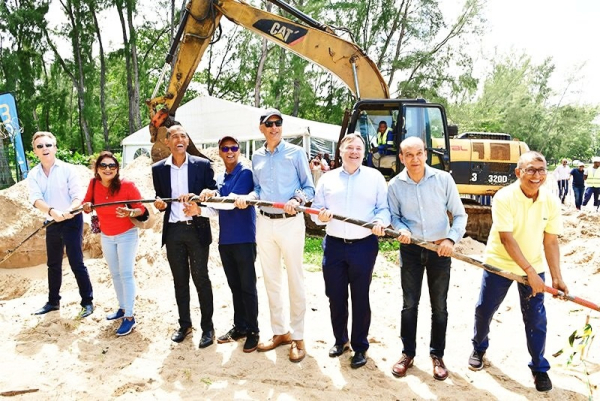
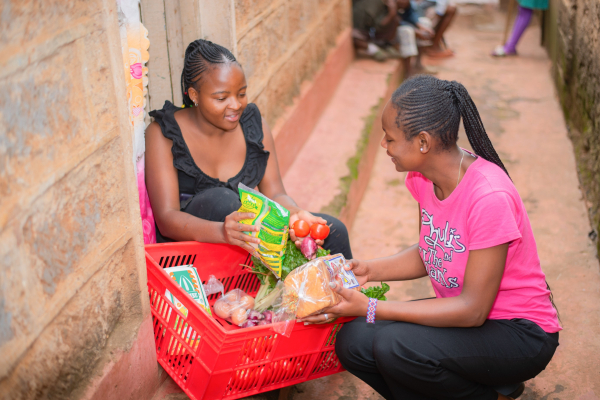
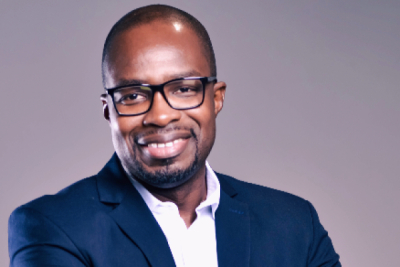

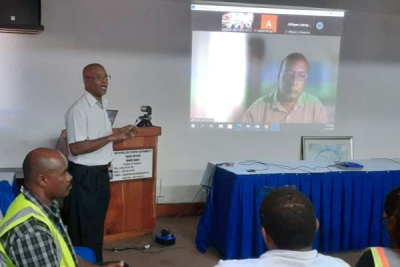
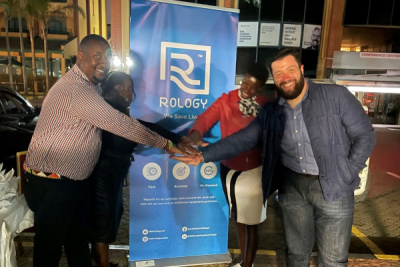

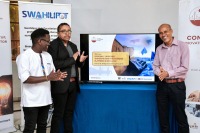
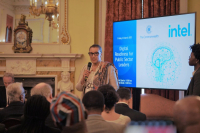




![Factor[e] Ventures launches an Africa-focused startup studio](/media/k2/items/cache/cbbcf4fa489d61b42aa4a35932850e0b_XS.jpg)